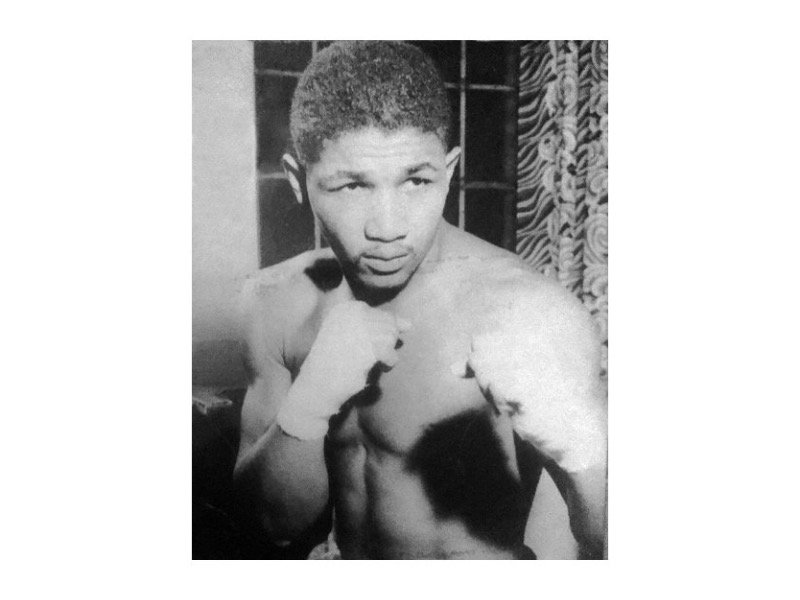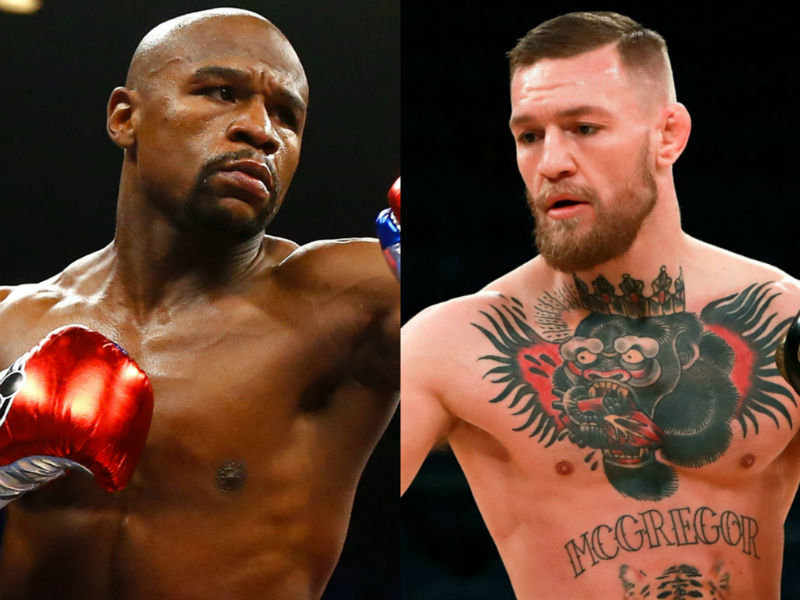When Jack Johnson whupped James J. Jeffries 100 years ago today, the celebration in Milwaukee's black community was joyful but muted enough to avoid the deadly violence that erupted elsewhere after the defeat of the Great White Hope.
Twenty-six persons were killed around the country in riots triggered by the "Fight of the Century" in Reno, Nevada.
The heavyweight champion was as exalted a figure as the President of the United States -- until Johnson won the title from Tommy Burns in 1908. The new champ's unabashed fondness for white women and fast cars enraged white folks as much as Johnson's superiority in the ring. Maybe it's just coincidence, but 89 black persons were lynched in the USA the year the brash, smiling Johnson won the title -- the most in seven years.
Johnson's victory over Burns kicked off the infamous "White Hope" era, when it was considered almost the patriotic duty of every Caucasian male of heavyweight proportions to restore white pride by trying to knock off Johnson's block.
On July 4, 1910, undefeated former champion Jeffries answered the call after a five-year retirement from boxing. Johnson handled him with ease, knocking Jeffries out in 15 rounds.
Sportswriter George E. Phair wrote in the Milwaukee Sentinel the next day that "The sunburned citizen at the lower end of (Wells St., then the epicenter of the local black community) has his day and he is spending it chuckling at the expense of his poor misguided white brethren who were foolish enough to bet against the remarkable Mistah Johnsing (sic)."
Racial condescension was par for the course in journalism then. The Milwaukee Journal frequently referred to Johnson as "the dinge" or "the Big Smoke."
"The day of the Emancipation Proclamation was a great day, but nothing compared to this," continued Phair. "To the black man freedom was something vague, something distant, something he could scarcely understand. The battle of Reno is something real, something he can grasp, something that tickles his racial pride and puts money in his pocket. No wonder he laughs and carries on jes' awful."
Unlike their counterparts elsewhere who vented their disappointment by beating or lynching the first black face they saw, the white crowd gathered in front of Morgenroth's tavern, gym and betting emporium near N. Plankinton and W. Kilbourn Aveunes for telegraphed reports from Reno limited their response to a collective "heartfelt groan."
At least none was as anguished as Antonine Rochi in Sacramento, Calif., whose despair over Jeffries' loss drove him to commit suicide by taking a six-foot swan dive off a bunk onto a cement floor.
Such extreme reactions didn't surprise Victor Berger, a prominent Milwaukee Socialist editor and politician. "As far as brutalizing influences are concerned people might just as well watch two big bloodhounds, the one white and the other black, gnaw at each other's throats as witness a fight such as the one held on July Fourth," he fumed.
To keep the mortality rate here at zero, Mayor Emil Seidel barred the showing of Johnson-Jeffries fight films in theaters "in the best interests of our city in general and our youth in particular."
Love him or hate him, over the years Milwaukeeans had several up-close opportunities to arrive at their own conclusions about Jack Johnson.
He made his first appearance here before he won the championship, performing on stage at the Star Theater at the intersection N. 3rd and W. Wells Streets. It was also one of Johnson's first stops after he won the title, and then he showed an altruistic side that surprised his detractors.
"Now that you're champ, I suppose you'll want a couple thousand dollars," theater manager Frank Trottman said to Johnson, whom he'd paid $500 the first time around.
"No sir. I don't forget my friends," replied Jack. "You were kind to me when I was broke. Now that I'm back here, I'll work for you for the same money -- $500."
Four days after the Jeffries fight, it was reported that Johnson was headed here "to see his wife's relatives, who live on Sixth Street." The reference was to Belle Schreiber, who was not Johnson's wife but one of his mistresses and a prostitute whose father was a Milwaukee policeman.
It was thanks to Schreiber's testimony two years later that the heavyweight champion was convicted of violating the federal Mann Act, which prohibited taking a woman across state lines for "immoral purposes." Johnson fled the country and lived abroad for three years.
In Havana, Cuba on April 5, 1915, he lost the title to Jess Willard, and then returned to the USA and served a year in prison.
On October 21, 1932, Johnson was back in Milwaukee, so broke that he wrestled Joe Bojacki at the Gayety Theater -- formerly the Star -- for $500. The story goes that the day after he got his money from wrestling promoter Paul Paloski, Johnson showed up in Chicago with a $5,000 car and a chauffeur. A month later, the car and driver were gone, and when Paloski asked what happened, Johnson, who'd financed everything with a $200 down-payment, flashed his famous golden smile and said, "Why, the man came and took it all back."
In 1940, Johnson actually resided here for a while. Just before his 62nd birthday on March 31, he contacted Russ Lynch, sports editor of The Milwaukee Journal, to propose that a heavyweight boxing tournament be held here on that date. He would box a four-round exhibition on the card himself, Johnson told Lynch, and "I'll buy you a suit of clothes if you can find a man in Milwaukee that can step around a ring as fast as I can."
Nothing came of the idea, and Johnson moved on. His final visit to Milwaukee was in February, 1945, when the ex-champion refereed a wrestling match and gave a talk at the South Side Armory on S. 6th St. and W. National Ave.
"I tell people in my talks that boys have got to keep on boxing, wrestling, playing baseball, even if there is a war," Johnson told Lynch. "More important because there's a war. These things are good for boys."
Jack Johnson died in an auto accident in Raleigh, North Carolina on June 10, 1946.
For several years now, Arizona's Sen. John McCain has spearheaded a campaign to win a presidential pardon for Johnson. Congress approved the measure, but President Obama has yet to act on it.
Johnson probably wouldn't care either way, same as it didn't bother him when he blew that wrestling dough and when, in 1930, Jim Jeffries angrily refused to have his photo taken with him in Los Angeles.
"He's still a joke just like he was in Reno," laughed Johnson.







